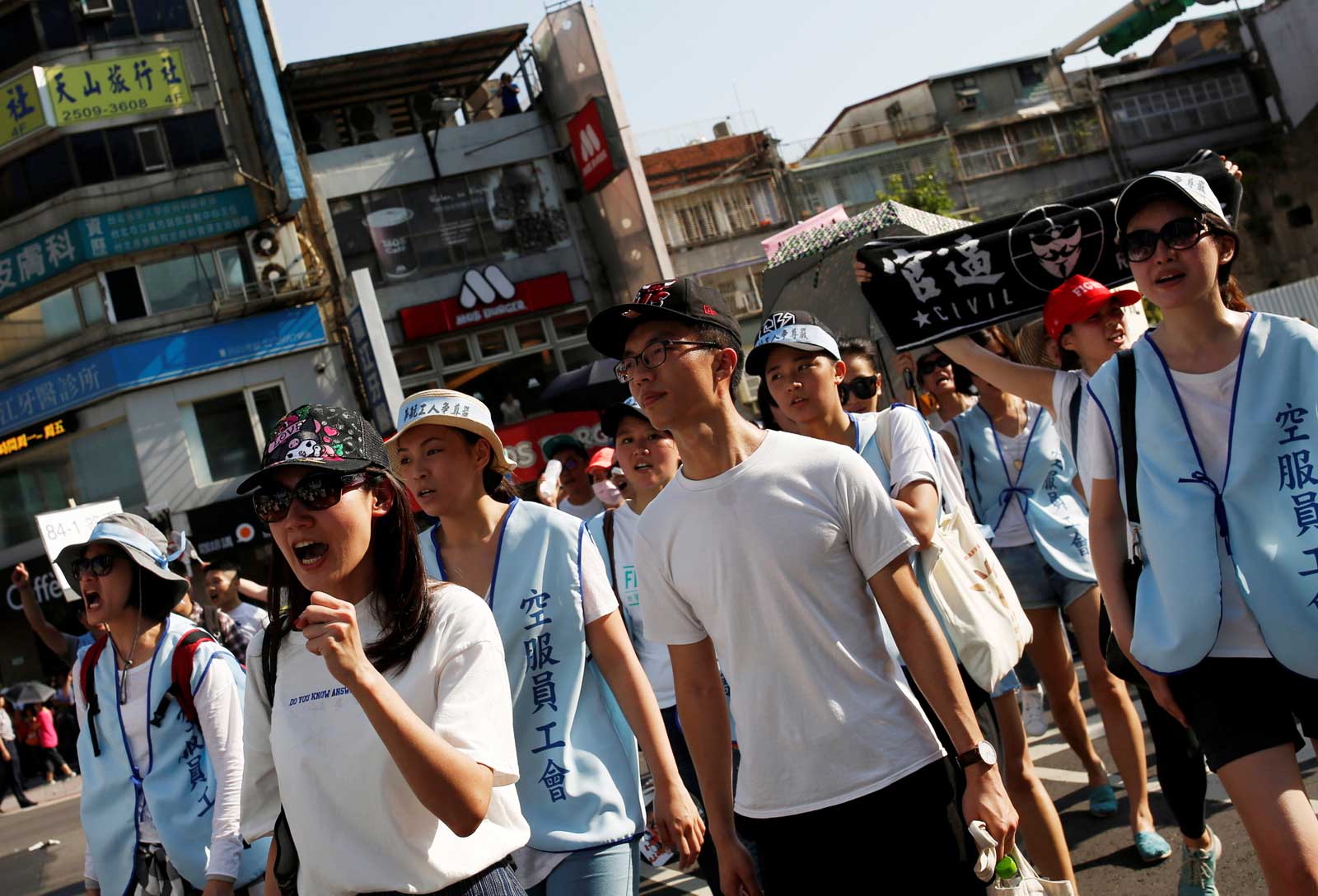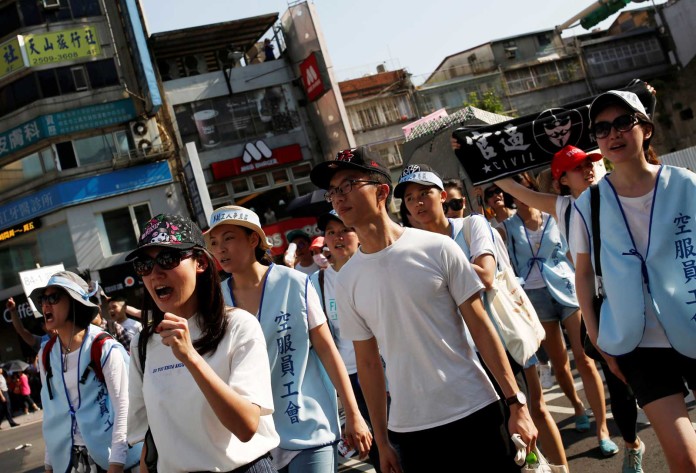TAIPEI – The workers’ union for Mandarin Airlines (華信航空) on Tuesday threatened to take a “collective vacation” during the busy Mid-Autumn Festival, after talks between management and employees of the domestic carrier broke down.
“There was a (management-labour) schism. They rejected our very first demand of equal pay for equal work,” union spokesman Wu Yan-hsien (吳彥賢) said.
The union said it was planning a”collective vacation”during the busy Mid-Autumn Festival and that it did not rule out formal strike action on Jan. 1, 2017.
Flight attendants of China Airlines (中華航空), the parent company of Mandarin Airlines, went on strike late June, winning key concessions from management.
Employees of Mandarin Airlines said that those concessions should also apply to them, and complained that they earned 60 per cent of wages earned by their counterparts at China Airlines.
Mandarin Airlines, based in Taipei, primarily operates domestic and regional flights including destinations in mainland China, Japan, the Philippines and Vietnam.
Wang said Mandarin Airlines management wanted to work around the “equal pay for equal work” impasse by discussing lower-priority issues – a suggestion that the union rejected. Labor-management talks ended two hours after they began.
Other Demands
The union wanted management to harmonize their working hours with national labour laws and to provide guarantees for annual days off and public holidays.
Employees also demanded a guaranteed minimum of eight days off per month and 30 days off per season.
Worker representatives also claimed that top managerial positions at Mandarin Airlines had been appointed by China Airlines, leading to policies that were not necessarily in the best interests of the former’s employees.
It also found wanting collective employee insurance with its parent company, which increased operating costs.
Representatives of management said that work-related parameters differed between domestic and international carriers and that further review of employee benefits, adjustment in wages and off days needed to take into account the practices of Taiwan’s other domestic carriers including those of Uni Air (立榮航空) and TransAsia Airways (復興航空).
Company officials also said they were negotiating “proactively” with employees, adding that it was pushing for collective bargaining, doubling wages for employees working on public holidays and providing subsidies for the cleaning of employee uniforms as well as certain increases in benefits.
It added that while it was open to future negotiations with “greatest sincerity,” it was also preparing to protect consumer interests.






